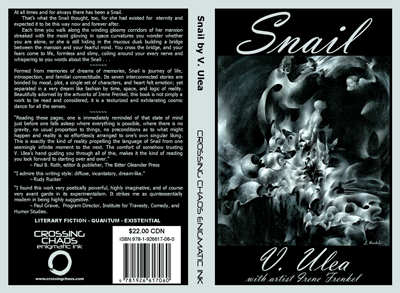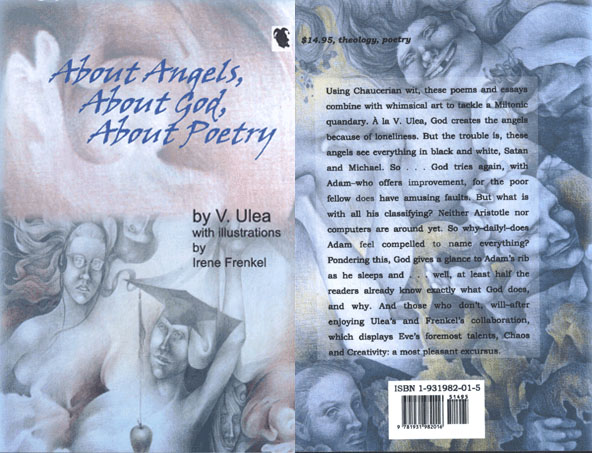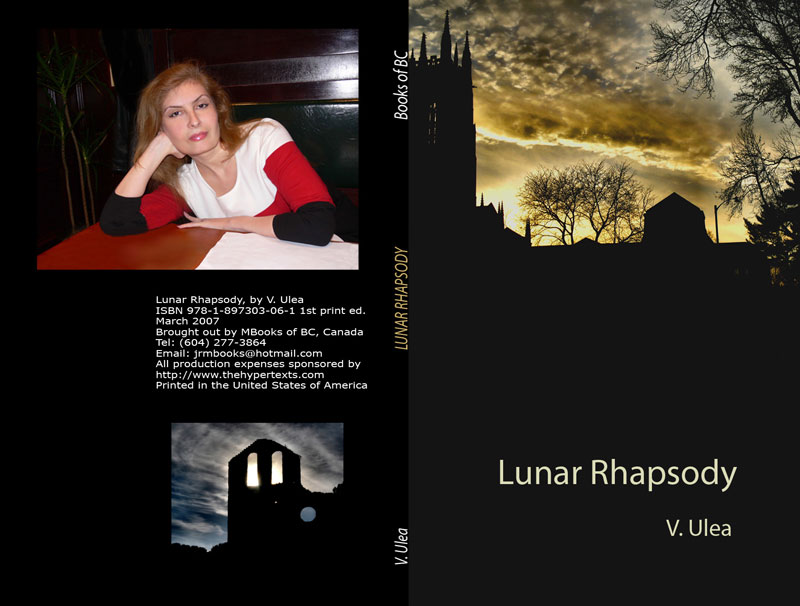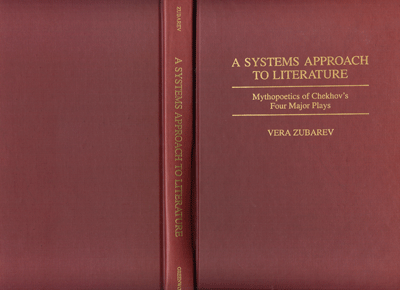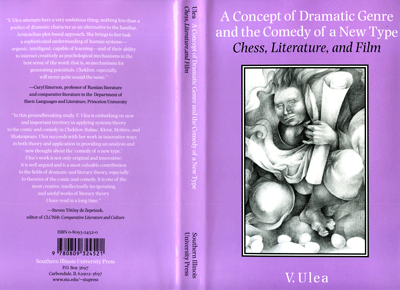
Copyright © 1999-2009 by Ulita Productions
...Lunar Rhapsody is not a collection of isolated poems, but rather an uninterrupted myth of the moon, cosmos, and human soul. All parts of the collection – from the cycle of the same name to “Blue Beard” – grow from that myth. To read the myth, however, one should have his own “key” because, like the moon itself, the myth is composed of various “faces” that touch upon different sides of the lunar kingdom, including the dark ones. It is not my intention, though, to define what the myth of the Lunar Rhapsody is, because in each reader the melody of the rhapsody should sound different. After all, everyone has his unique relationship with the universe…
Reviews >>
Reviews >>
À la Ulea, God creates the angels because of loneliness. But the trouble is that these angels see everything in black and white, Satan and Gabriel. So . . . God tries again, with Adam-who offers improvement, for the poor fellow does have some amusing faults. But what is with all this classifying? Neither Aristotle nor computers are around yet. So why-daily-does Adam feel compelled to name everything? Pondering this, God gives a glance to Adam’s rib as he sleeps and . . . well, at least half the readers will know exactly what God does and why. And those who don’t, will, after seeing how Ulea and Frenkel have combined Eve’s foremost talents, Chaos and Creativity, to offer us a most pleasant excursus.

At all times and for always there has been a Snail.
That’s what the Snail thought, too, for she had existed for eternity and expected it to be this way now and forever after.
Each time you walk along the winding gloomy corridors of her mansion streaked with the moist glowing in space curvatures you wonder whether you are alone, or she is still hiding in the mucous dusk building a bridge between the mansion and your fearful mind.
You cross the bridge, and your fears come to life, formless and slimy, coiling around your every nerve and whispering to you words about the Snail.
Reviews >>
That’s what the Snail thought, too, for she had existed for eternity and expected it to be this way now and forever after.
Each time you walk along the winding gloomy corridors of her mansion streaked with the moist glowing in space curvatures you wonder whether you are alone, or she is still hiding in the mucous dusk building a bridge between the mansion and your fearful mind.
You cross the bridge, and your fears come to life, formless and slimy, coiling around your every nerve and whispering to you words about the Snail.
Reviews >>

The analysis of the mythopoetics of a literary work involves the search for mythological archetypes, parallels, paradigms, and motives in a literary text. In a new attempt at an integrated vision of literary works, Zubarev presents a comprehensive approach on the basis of mythopoetics. Her theory is verified through a close examination of four of Chekhov's major plays: The Seagull, Uncle Vanya, Three Sisters, and The Cherry Orchard. Zubarev presents a compelling approach to literary analysis, and explores the enigmatic roots of Chekhov's universal significance. Her mythopoetic study sheds light on why Chekhov's plays are moving in any language and in any time
Dramatic genre deals with the potential of the artistic universe, which can be measured based on the methodology elaborated for indeterministic systems, taking into account the peculiarity of the artistic system when compared to other systems. I distinguish between three types of potential that correspond to three types of dramatic genre—dramedy, drama, and comedy.”

